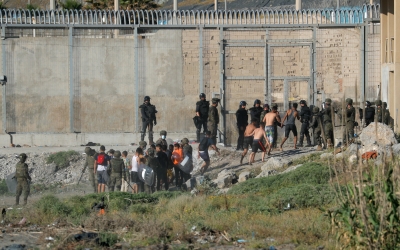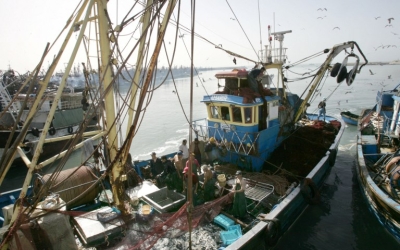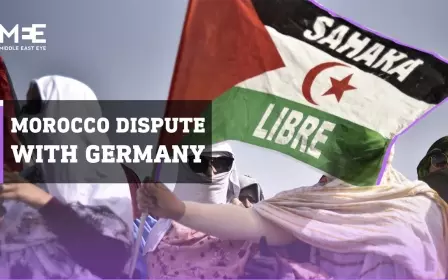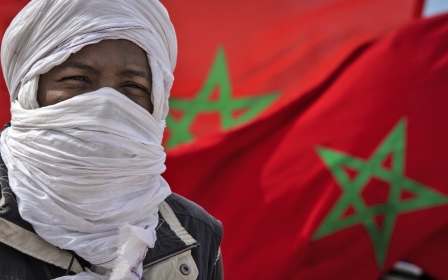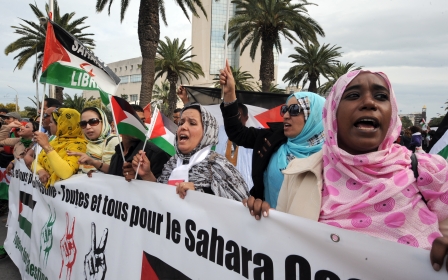Polisario Front leader leaves Spain following diplomatic row with Morocco
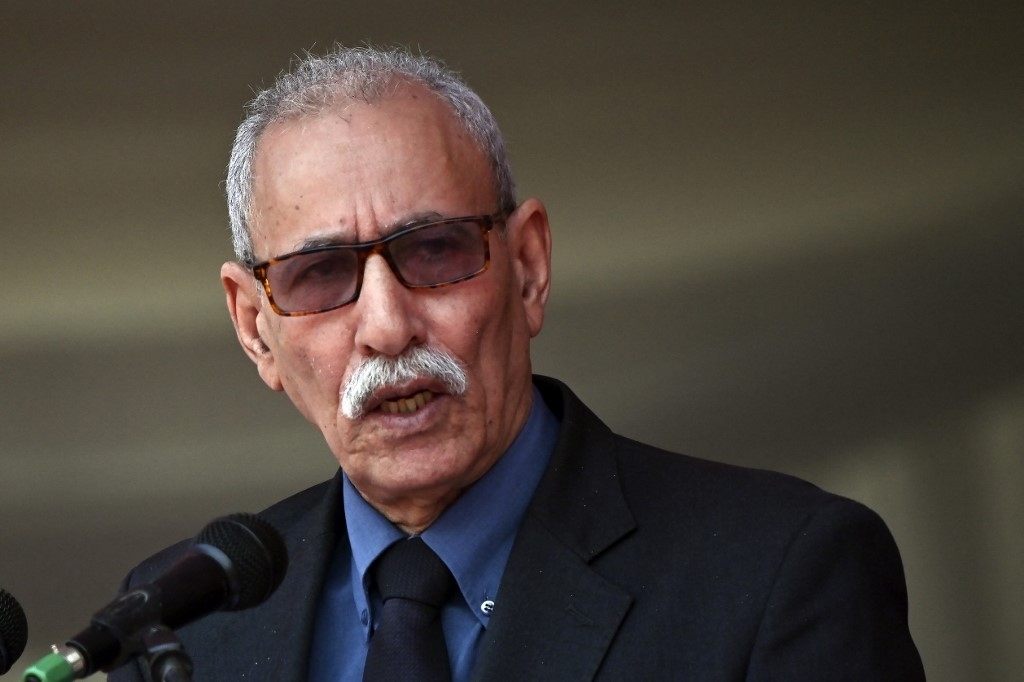
The leader of the Polisario Front, Brahim Ghali, has left Spain as tensions continue to grow between the country and Morocco over the presence of the Sahrawi political activist.
Ghali, president of the Sahrawi Arab Democratic Republic (SADR) and secretary-general of the Polisario Front, left Spain in the early hours of Wednesday. Ghali had been in Spain to receive treatment for a Covid-19 infection.
According to the Spanish daily El Pais, Ghali's plane took off at 1:40am (Spanish time) from Pamplona airport to Algiers. The medicalised plane, according to Spanish media, was chartered by Algeria.
Enaire, the air navigation manager for Spain and Western Sahara, indicated to AFP that a plane belonging to Algeria coming from Algiers and with Logrono as the destination had entered Spanish airspace on Tuesday and made a U-turn on "orders from military air traffic controllers".
The plane was, according to the El Confidencial website, sent to recover the Polisario leader.
The Spanish government, through the foreign ministry, announced on Tuesday that "[Brahim Ghali] has [planned] to leave Spain this evening aboard a civilian plane from Pamplona airport", without specifying the destination.
According to Madrid, Ghali "had the papers in his name with which he [had] entered Spain".
This announcement came a few hours after the hearing of Ghali by the Spanish courts in the context of two complaints against him for "torture" and "genocide". Judge Santiago Pedraz's decision not to take coercive action against him paved the way for his departure.
Saharawi sources, cited by El Pais, indicated that Ghali would complete his recovery from Covid-19 in Algeria.
The Polisario leader secretly arrived in Spain on 18 April aboard an Algerian presidential medical plane and had been provided with a "diplomatic passport", according to El Pais. He was subsequently admitted in critical condition to Logrono Hospital.
His presence in Spain triggered a major diplomatic crisis between Madrid and Rabat, culminating in the arrival, in mid-May, of nearly 10,000 migrants in the Spanish enclave of Ceuta, thanks to a relaxation of controls by the Moroccan authorities.
Ghali's departure risks rekindling these tensions as Morocco warned a few days ago of a "deterioration" of the crisis if the Polisario leader were allowed to return home.
According to El Pais, Rabat called Ghali's departure "ridiculous" and said they were looking at "the severing [of diplomatic relations] with Spain and the dismissal of the Spanish ambassador".
In an editorial, the news outlet said it did not expect a return to normalisation between the two countries any time soon.
"It will be very difficult for the Spanish foreign minister to reestablish relations with the Moroccan authorities, who argue that the underlying problem is 'a matter of broken trust'", it read.
Accusations 'totally false'
Ghali appeared in a Madrid court via video link on Tuesday from his hospital to hear the charges levelled against him.
The most recent, for "illegal arrest, torture and crimes against humanity", was filed in 2020 by Fadel Breika, a former Polisario member who claims to have been the victim of "torture" in the Sahrawi refugee camps in Algeria.
The other was filed in 2007 by the Spain-based Sahrawi Association for the Defence of Human Rights for "genocide", "assassination", "terrorism", "torture" and "disappearances", again in the refugee camps.
Ghali was elected leader of the Polisario Front in 2016 by members of the camps, which were set up in the mid-1970s for Sahrawi refugees fleeing Moroccan forces.
Lawyer Manuel Olle said the accusations against his client were "totally false" and suggested Morocco was behind the claims.
"The tortures are confirmed by thousands of witnesses," retorted Fadel Breika's lawyer, Maria Jose Malagon Ruiz del Valle.
At the end of the hearing, the judge rejected the plaintiffs' request, which called for the confiscation of Ghali's passport and his pre-trial detention.
He justified his decision by saying that the report of the prosecution did not provide any evidence proving that the Polisario leader was "responsible for a crime".
Middle East Eye propose une couverture et une analyse indépendantes et incomparables du Moyen-Orient, de l’Afrique du Nord et d’autres régions du monde. Pour en savoir plus sur la reprise de ce contenu et les frais qui s’appliquent, veuillez remplir ce formulaire [en anglais]. Pour en savoir plus sur MEE, cliquez ici [en anglais].


